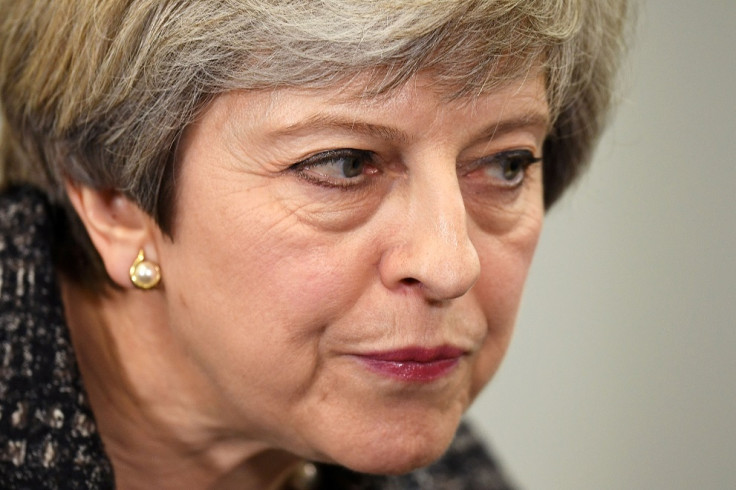Why Tory promises on workers' rights aren't worth the paper they're written on
Unless Conservatives scrap the employment tribunal fees they introduced, workers can't enforce their rights.

In politics and journalism you invariably encounter people who believe that it is fundamentally the job of one class to order another class around. They typically adopt a particular set of mental rationalisations to justify this hierarchy of human worth.
Some cling rigidly to the notion of IQ. Some still believe in more mystical concepts like 'breeding'. Others simply view the working class as the "inert matter of the historical process", as Jose Ortega y Gasset, the early twentieth century Spanish philosopher, put it. They are expendable, like a rotten tomato or a pet goldfish.
But more commonly an ignorance of working life rests upon an unwillingness to look beyond what Marx called "the realm of freedom, equality, property and Bentham".
It isn't that those who impose - and proselytise on behalf of - policies like the bedroom tax or the trade union bill are black-hearted tyrants. It is that they do not see, and do not much care to look at, the reality of a life as it is actually lived when a person is subsisting on benefits or a poverty wage.
How refreshing, then, to have a Conservative prime minister who appears to care a hoot for workers' rights. Especially when her opposite number Jeremy Corbyn seems obsessed with a more abstract interpretation of socialism encapsulated by things like nationalisation.
The Conservatives have today announced what Theresa May has called "the greatest extension of rights and protections for employees by any Conservative government in history".
This includes mandating representation for workers on company boards, more rights for workers in the 'gig' economy, a new statutory right for employees to receive "reasonable" information about decisions affecting their company's future, the protection of all workers' rights currently guaranteed by EU law, and a statutory right to request leave to care for an elderly relative.
This is evidently yet another attempt by Theresa May to park her tanks firmly on Labour's lawn. In this instance, the Tories are effectively watering their horses in Brewers' Green, Labour's headquarters. David Cameron and George Osborne deployed the same tactic to considerable effect in the previous parliament, sending party Chairman Grant Shapps out to talk-up the Tories as the "new workers' party".
All successful parties of government steal some of the clothing of their rivals, and I suspect, given the overwhelmingly favourable press coverage she has received thus far, Theresa May will see a small boost in the polls as a result of her supposed tack to the left.
Yet whether there is substance to the latest Tory proposals for workers is another matter entirely. Employment tribunal fees were probably the most notorious example of anti-worker legislation introduced by the previous Tory-Lib Dem government, and Theresa May has no plans to abolish them. It now costs up to £1,200 to enforce any statutory rights the government decides to grant you, meaning workplace legislation is very often not worth the paper it is written on.
Unsurprisingly, since fees were introduced in 2013, there has been a 70% drop in workers bringing cases to tribunals. If you believe this is due to a collapse in workplace abuses, I suggest you put the Bentham down (or perhaps log out of Twitter) and head out to the nearest warehouse or call centre.
Promises on the gig economy are similarly lightweight when a host of ongoing cases are due before employment courts involving companies like Uber and Deliveroo. It seems increasingly likely that the army of 'self-employed contractors' who work 'with' these companies will soon be granted worker or employee status by the courts - Uber has already lost its first hearing against two drivers and is appealing.
Thus any forthcoming Tory proposals that do not go as far as the forthcoming court judgements are likely to be an effective sop to gig employers. And besides, the same principle will surely apply as before: how will a low-income Eritrean Uber driver hypothetically take Uber to a tribunal? They won't, and the Tories must know they won't.
The left will view May's latest announcements with some cynicism, which is as it should be, for the prime minister is politicking just as David Cameron and George Osborne were politicking when they once claimed to be operating firmly on the centre ground. For all the glowing headlines in The Sun, behind the scenes they were simultaneously taking a scythe to workers' rights.
Similarly, when every one of today's statutory policy announcements depends on the ability of employees to actually enforce them, Theresa May might as well be gifting a bicycle to a one-legged man.
But politicking is the price politicians must pay if they want to win power. Theresa May has no intention of turning the Tories into a genuine workers' party. Yet as her predecessors understood, you win elections as much by shoring up your exposed flanks as by charging ahead with a spear soaked with red meat to toss to the party grassroots.
The Tories are making the headlines today, but there is a lesson here for the Labour Party.
James Bloodworth is the former editor of Left Foot Forward, one of the UK's top political blogs, and the author of The Myth of Meritocracy.
© Copyright IBTimes 2025. All rights reserved.






















